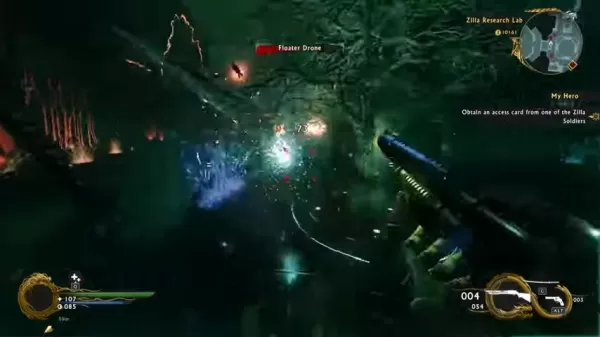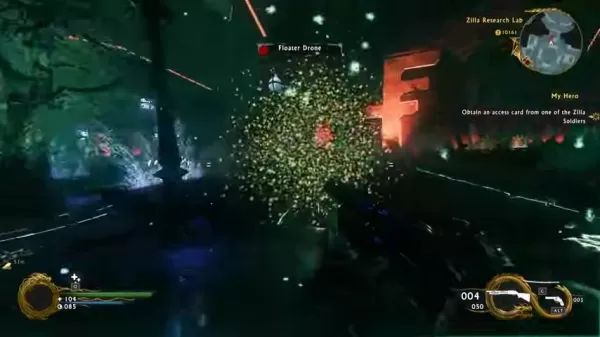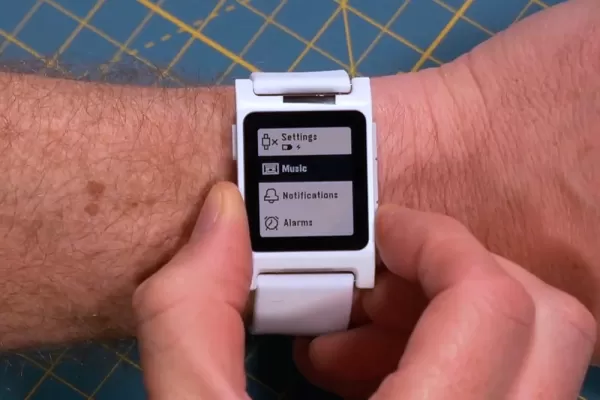AI in Gaming: Developers' Insights and Steam's Latest Tag Update
The AI Revolution in Gaming: Innovation vs. Artistic Integrity
The gaming industry is at a crossroads. Artificial intelligence is no longer just a buzzword—it's actively reshaping how games are made, played, and experienced. From procedural generation to dynamic storytelling, AI promises to revolutionize gaming. But with great power comes great debate.
Is AI the future of game development, or does it threaten the human creativity that makes games special? Let’s dive into the heated discussion surrounding AI in gaming—covering everything from Steam’s controversial AI disclosure tags to Microsoft’s massive AI investments.
AI in Gaming: A Double-Edged Sword
Why Are Developers Embracing AI?
Game development is expensive. AAA titles now require budgets in the hundreds of millions, with teams of hundreds (or even thousands) of developers. AI offers a lifeline—automating repetitive tasks, generating assets faster, and even assisting in level design.
Key benefits of AI in gaming:
✔ Faster development cycles – AI can generate textures, models, and even basic code, reducing production time.
✔ Dynamic gameplay – NPCs with advanced AI can react more realistically to player actions.
✔ Cost efficiency – Smaller studios can compete with AAA giants by leveraging AI tools.
But here’s the catch—does AI-generated content lack soul? Many gamers fear that AI-made worlds will feel sterile, missing the human touch that makes games like The Last of Us or Elden Ring so emotionally gripping.

Microsoft & Xbox: Going All-In on AI
Microsoft isn’t just dabbling in AI—it’s betting big. Their recent investments suggest a future where AI enhances everything from NPC behavior to real-time physics simulations.
What’s in store?
- Smarter NPCs – Characters that learn from player behavior, making each playthrough unique.
- Procedural storytelling – Games that adapt narratives based on player choices.
- Personalized difficulty – AI adjusting challenges in real-time to match player skill.
But with great power comes ethical concerns. If AI can manipulate emotions or create hyper-realistic experiences, where do we draw the line?

Steam’s AI Tag: Transparency or Stigma?
SteamDB recently introduced an automatic tag for games using generative AI. The goal? Transparency. But the gaming community is split.
Pros:
✅ Players can avoid AI-heavy games if they prefer human-made content.
✅ Encourages honesty from developers about their tools.
Cons:
❌ Could unfairly stigmatize indie devs who rely on AI to compete.
❌ Might discourage innovation by making AI seem "less legitimate."

The Big Question:
If a game uses AI but doesn’t disclose it, will Steam catch it? Right now, the system relies on developer honesty—leaving room for abuse.
Feature Impact Automatic Tagging Flags games based on AI disclosures. Player Choice Lets gamers decide if they support AI-generated content. Potential Bias Could lead to unfair prejudice against AI-assisted games.
The Dark Side of AI in Gaming
1. Job Displacement: Will AI Replace Developers?
AI can automate tasks like texture generation and bug testing—but at what cost? Many fear mass layoffs in art, design, and QA roles.
The Counterargument:
- New jobs in AI training, supervision, and integration may emerge.
- AI could democratize game dev, letting small teams create AAA-quality games.
2. Creativity vs. Automation
AI can generate levels, dialogue, and even music—but can it craft a story as moving as Red Dead Redemption 2?
The Risk: Games might become formulaic, losing the unique vision of human creators.
3. Will Game Prices Drop? (Spoiler: Probably Not)
AI could cut costs, but don’t expect cheaper games. Publishers are more likely to pocket the savings rather than pass them to players.
FAQ: Your Burning Questions Answered
❓ Will AI replace human game developers?
Unlikely. AI is a tool, not a replacement. It can assist with repetitive tasks, but creativity, storytelling, and emotional depth still require humans.
❓ Are AI-made games worse than human-made ones?
Not necessarily. It depends on how AI is used. Some AI tools enhance creativity, while others may lead to generic, soulless content.
❓ How can I tell if a game uses AI?
- Look for Steam’s AI tag (when fully implemented).
- Check developer disclosures—some are transparent, others aren’t.
- Watch for "off" details—AI-generated art sometimes has weird inconsistencies.
Final Verdict: AI is Here to Stay—But Should We Embrace It?
AI is transforming gaming, whether we like it or not. The real question is: Will it elevate creativity, or just cut costs at the expense of artistry?
For now, the best approach might be balance—using AI to handle tedious work while keeping human vision at the core.
What do you think? Is AI the future of gaming, or a threat to its soul? Drop your thoughts in the comments! 🚀
Related article
 Why LLMs Ignore Instructions & How to Fix It Effectively
Understanding Why Large Language Models Skip Instructions
Large Language Models (LLMs) have transformed how we interact with AI, enabling advanced applications ranging from conversational interfaces to automated content generation and programming ass
Why LLMs Ignore Instructions & How to Fix It Effectively
Understanding Why Large Language Models Skip Instructions
Large Language Models (LLMs) have transformed how we interact with AI, enabling advanced applications ranging from conversational interfaces to automated content generation and programming ass
 Pebble Reclaims Its Original Brand Name After Legal Battle
The Return of Pebble: Name and AllPebble enthusiasts can rejoice - the beloved smartwatch brand isn't just making a comeback, it's reclaiming its iconic name. "We've successfully regained the Pebble trademark, which honestly surprised me with how smo
Pebble Reclaims Its Original Brand Name After Legal Battle
The Return of Pebble: Name and AllPebble enthusiasts can rejoice - the beloved smartwatch brand isn't just making a comeback, it's reclaiming its iconic name. "We've successfully regained the Pebble trademark, which honestly surprised me with how smo
 "Graph AI Transforms Business Intelligence Using Knowledge Graphs"
Key PointsGraph AI harnesses knowledge graphs revealing hidden connections within complex datasets.Knowledge graphs visualize information as interconnected nodes and relationships.Identifies irregular patterns through sophisticated anomaly detection
Comments (2)
0/200
"Graph AI Transforms Business Intelligence Using Knowledge Graphs"
Key PointsGraph AI harnesses knowledge graphs revealing hidden connections within complex datasets.Knowledge graphs visualize information as interconnected nodes and relationships.Identifies irregular patterns through sophisticated anomaly detection
Comments (2)
0/200
![WillLopez]() WillLopez
WillLopez
 September 17, 2025 at 8:30:35 AM EDT
September 17, 2025 at 8:30:35 AM EDT
게임 개발자들이 AI 도구 사용을 점점 늘리고 있군요. 하지만 창의성과 예술성은 어떻게 보존될지 걱정이 되네요. AI가 만든 스토리와 캐릭터가 진정한 예술로 남을 수 있을까요? 😕


 0
0
![CharlesGonzalez]() CharlesGonzalez
CharlesGonzalez
 August 9, 2025 at 3:00:59 AM EDT
August 9, 2025 at 3:00:59 AM EDT
AI in gaming is wild! Procedural generation sounds like a game-changer, but I wonder if it’ll make every game feel samey. Still, super hyped to see where this goes! 🎮


 0
0
The AI Revolution in Gaming: Innovation vs. Artistic Integrity
The gaming industry is at a crossroads. Artificial intelligence is no longer just a buzzword—it's actively reshaping how games are made, played, and experienced. From procedural generation to dynamic storytelling, AI promises to revolutionize gaming. But with great power comes great debate.
Is AI the future of game development, or does it threaten the human creativity that makes games special? Let’s dive into the heated discussion surrounding AI in gaming—covering everything from Steam’s controversial AI disclosure tags to Microsoft’s massive AI investments.
AI in Gaming: A Double-Edged Sword
Why Are Developers Embracing AI?
Game development is expensive. AAA titles now require budgets in the hundreds of millions, with teams of hundreds (or even thousands) of developers. AI offers a lifeline—automating repetitive tasks, generating assets faster, and even assisting in level design.
Key benefits of AI in gaming:
✔ Faster development cycles – AI can generate textures, models, and even basic code, reducing production time.
✔ Dynamic gameplay – NPCs with advanced AI can react more realistically to player actions.
✔ Cost efficiency – Smaller studios can compete with AAA giants by leveraging AI tools.
But here’s the catch—does AI-generated content lack soul? Many gamers fear that AI-made worlds will feel sterile, missing the human touch that makes games like The Last of Us or Elden Ring so emotionally gripping.

Microsoft & Xbox: Going All-In on AI
Microsoft isn’t just dabbling in AI—it’s betting big. Their recent investments suggest a future where AI enhances everything from NPC behavior to real-time physics simulations.
What’s in store?
- Smarter NPCs – Characters that learn from player behavior, making each playthrough unique.
- Procedural storytelling – Games that adapt narratives based on player choices.
- Personalized difficulty – AI adjusting challenges in real-time to match player skill.
But with great power comes ethical concerns. If AI can manipulate emotions or create hyper-realistic experiences, where do we draw the line?

Steam’s AI Tag: Transparency or Stigma?
SteamDB recently introduced an automatic tag for games using generative AI. The goal? Transparency. But the gaming community is split.
Pros:
✅ Players can avoid AI-heavy games if they prefer human-made content.
✅ Encourages honesty from developers about their tools.
Cons:
❌ Could unfairly stigmatize indie devs who rely on AI to compete.
❌ Might discourage innovation by making AI seem "less legitimate."

The Big Question:
If a game uses AI but doesn’t disclose it, will Steam catch it? Right now, the system relies on developer honesty—leaving room for abuse.
| Feature | Impact |
|---|---|
| Automatic Tagging | Flags games based on AI disclosures. |
| Player Choice | Lets gamers decide if they support AI-generated content. |
| Potential Bias | Could lead to unfair prejudice against AI-assisted games. |
The Dark Side of AI in Gaming
1. Job Displacement: Will AI Replace Developers?
AI can automate tasks like texture generation and bug testing—but at what cost? Many fear mass layoffs in art, design, and QA roles.
The Counterargument:
- New jobs in AI training, supervision, and integration may emerge.
- AI could democratize game dev, letting small teams create AAA-quality games.
2. Creativity vs. Automation
AI can generate levels, dialogue, and even music—but can it craft a story as moving as Red Dead Redemption 2?
The Risk: Games might become formulaic, losing the unique vision of human creators.
3. Will Game Prices Drop? (Spoiler: Probably Not)
AI could cut costs, but don’t expect cheaper games. Publishers are more likely to pocket the savings rather than pass them to players.
FAQ: Your Burning Questions Answered
❓ Will AI replace human game developers?
Unlikely. AI is a tool, not a replacement. It can assist with repetitive tasks, but creativity, storytelling, and emotional depth still require humans.
❓ Are AI-made games worse than human-made ones?
Not necessarily. It depends on how AI is used. Some AI tools enhance creativity, while others may lead to generic, soulless content.
❓ How can I tell if a game uses AI?
- Look for Steam’s AI tag (when fully implemented).
- Check developer disclosures—some are transparent, others aren’t.
- Watch for "off" details—AI-generated art sometimes has weird inconsistencies.
Final Verdict: AI is Here to Stay—But Should We Embrace It?
AI is transforming gaming, whether we like it or not. The real question is: Will it elevate creativity, or just cut costs at the expense of artistry?
For now, the best approach might be balance—using AI to handle tedious work while keeping human vision at the core.
What do you think? Is AI the future of gaming, or a threat to its soul? Drop your thoughts in the comments! 🚀
 Why LLMs Ignore Instructions & How to Fix It Effectively
Understanding Why Large Language Models Skip Instructions
Large Language Models (LLMs) have transformed how we interact with AI, enabling advanced applications ranging from conversational interfaces to automated content generation and programming ass
Why LLMs Ignore Instructions & How to Fix It Effectively
Understanding Why Large Language Models Skip Instructions
Large Language Models (LLMs) have transformed how we interact with AI, enabling advanced applications ranging from conversational interfaces to automated content generation and programming ass
 Pebble Reclaims Its Original Brand Name After Legal Battle
The Return of Pebble: Name and AllPebble enthusiasts can rejoice - the beloved smartwatch brand isn't just making a comeback, it's reclaiming its iconic name. "We've successfully regained the Pebble trademark, which honestly surprised me with how smo
Pebble Reclaims Its Original Brand Name After Legal Battle
The Return of Pebble: Name and AllPebble enthusiasts can rejoice - the beloved smartwatch brand isn't just making a comeback, it's reclaiming its iconic name. "We've successfully regained the Pebble trademark, which honestly surprised me with how smo
 "Graph AI Transforms Business Intelligence Using Knowledge Graphs"
Key PointsGraph AI harnesses knowledge graphs revealing hidden connections within complex datasets.Knowledge graphs visualize information as interconnected nodes and relationships.Identifies irregular patterns through sophisticated anomaly detection
"Graph AI Transforms Business Intelligence Using Knowledge Graphs"
Key PointsGraph AI harnesses knowledge graphs revealing hidden connections within complex datasets.Knowledge graphs visualize information as interconnected nodes and relationships.Identifies irregular patterns through sophisticated anomaly detection
 September 17, 2025 at 8:30:35 AM EDT
September 17, 2025 at 8:30:35 AM EDT
게임 개발자들이 AI 도구 사용을 점점 늘리고 있군요. 하지만 창의성과 예술성은 어떻게 보존될지 걱정이 되네요. AI가 만든 스토리와 캐릭터가 진정한 예술로 남을 수 있을까요? 😕


 0
0
 August 9, 2025 at 3:00:59 AM EDT
August 9, 2025 at 3:00:59 AM EDT
AI in gaming is wild! Procedural generation sounds like a game-changer, but I wonder if it’ll make every game feel samey. Still, super hyped to see where this goes! 🎮


 0
0





























